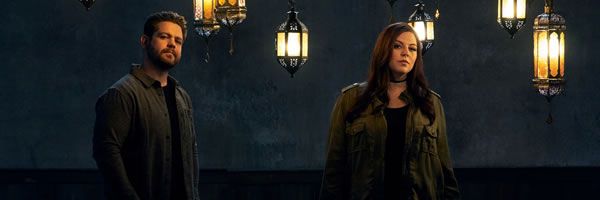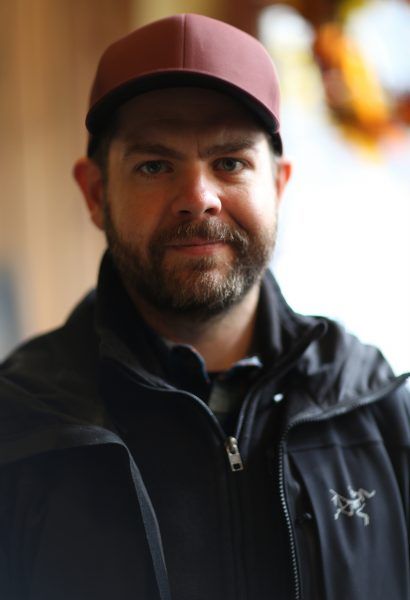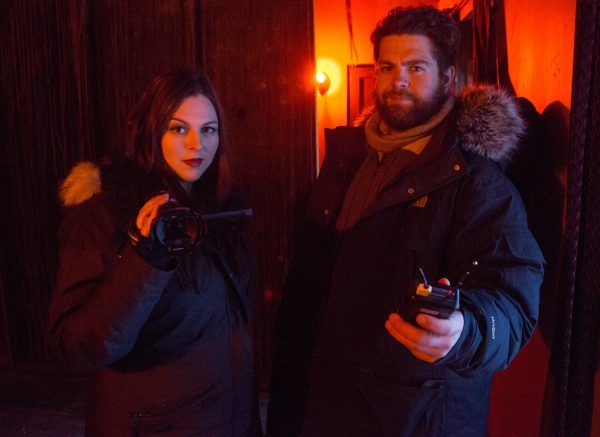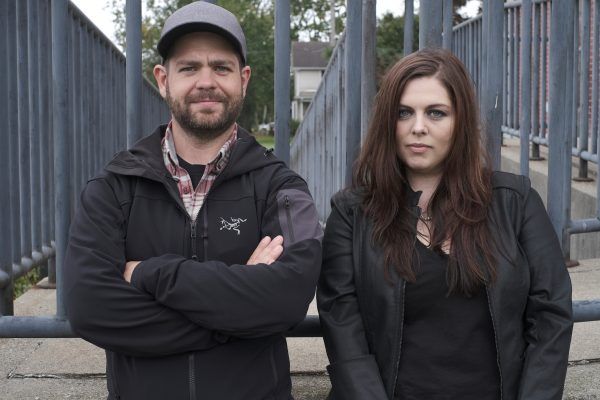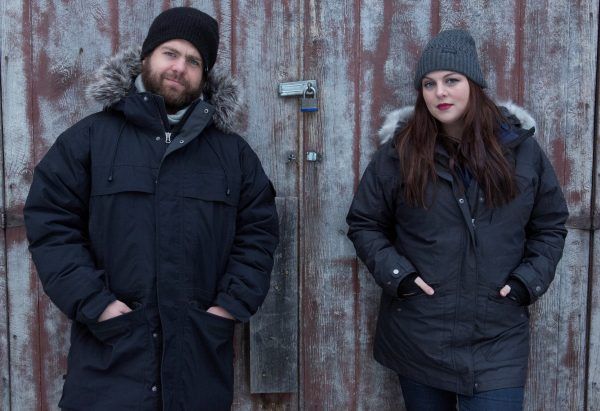On the Travel Channel series Portals to Hell, TV personality/executive producer Jack Osbourne and paranormal researcher/investigator Katrina Weidman explore haunted locations in search of undeniable evidence that a spirit world exists. Examining unusual incidents on a quest for answers, the duo showcase historical sites that all have a spooky story of their own while also attempting to uncover places that no other team has ever investigated.
During this 1-on-1 phone interview with Collider, Jack Osbourne talked about how he first became interested in the paranormal, having things happen in his own house, the challenges in trying to explain the unexplained, finding new locations to explore, and wondering when and how they’ll be able to continue with the series, with the existence of COVID-19. He also talked about how he came to executive produce the upcoming documentary The Nine Lives of Ozzy Osbourne (airing on A&E in the summer), the experience of digging into the life of his own father, and what he hopes people take away from watching the film.
Collider: What was it that originally made you want to delve into the paranormal?
JACK OSBOURNE: It’s funny, I grew up watching The X-Files, and I’ve always been fascinated with anything paranormal, from UFO stuff, the Lochness monster, Big Foot, ghosts, whatever. I’ve always loved the subject matter. And then, in the late ‘90s, early 2000s, with the launch of a lot of paranormal programming and different ghost shows, I was always like, “Wow, it’d be awesome to be able to do that.” In 2011, I did my first paranormal show, which was Haunted Highway. That ran for two seasons, and then I went on to other projects. And then, a few years ago Travel, who we have a good relationship with, were like, “Hey, does Jack wanna do a paranormal show again?” And I was like, “Heck, yeah, I do!”
It’s one thing to say that it would be really cool, but it’s another thing when you’re in it. Have you ever had a moment where you’ve wondered what you’ve gotten yourself into?
OSBOURNE: Yes, but not for the reasons that people might think. We’re dealing in such macabre subject matters, all the time. It’s about death, at the end of the day, and what happens after, so it weighs on me, in that way. I don’t necessarily feel all that spooked out, a lot of the times, but when you go back to your hotel and you get into bed, and you’re thinking about a horrible story about the torture or the murder of that person, it can weigh heavy on you. And there’s some weird stuff that’s happened at my house. That’s another side of things, too.
When things are happening in your own house, does it change how you view it, after having these experiences?
OSBOURNE: Oh, absolutely. Ultimately, I have more questions than answers. When we finish with this season, we’ll be at 26 investigations, and I still have more questions than answers, at the end of the day. It’s baffling to me, what it really is and means.
When you spend all of this time exploring the unexplained, is there ever a way to truly explain what you experience, or to find those answers that you’re looking for?
OSBOURNE: Yes, there are. Katrina [Weidman] is the best at breaking this down. The way that this shows came together, Katrina, my co-host, very much represents the lifelong expert while I’m the enthusiast that’s lucky to be in this position. Over the last two years, my theory on it is that there are four or five things that I think go on with hauntings. The first theory is that a lot of it, potentially, could be environmental toxification, with things like toxic mold and gas leaks. Over long term exposure, people have weird reactions. Magic mushrooms are a mold, so what’s to say that some weird house mold can’t cause you to hallucinate. The second theory is that we are encountering some unknown energy that’s eliciting psychological responses, whether it’s hallucinations, auditory hallucinations, or whatever. For the most part, that’s what I think is going on. Whatever that energy source is, it’s been around for a very long time, and probably since the dawn of humanity. I don’t think it’s necessarily intelligent, but there’s something to that. There are gamma rays, x-rays, and all of these rays around us, and we don’t see them, but we’re learning how to interact with them, so maybe there’s a whole spectrum which we’re not aware of. The third theory is that intelligent entities have the ability to travel inter-dimensionally and because they just in a different spectrum, we can’t see them normally. Now, we start getting into some really far out weirdness. The last option is residual, which you can think of as an energy echo of a traumatic event that occurred in a house, and that energy is captured there and bouncing around. I don’t know if you’ve ever had a family member pass away, but if you go to a place that they frequented a lot, their energy feels familiar to that place, even though they might not be alive. And then, the least likely option that is that there is an intelligent spirit that has the ability to communicate with us. I think that isn’t as common as people think.
How do you decide which places you want to explore? Is there a list of places that you’re allowed to explore?
OSBOURNE: Our show is called Portals to Hell, so the original conceit of the show was to find locations that have an alleged portal. After Season 1, we realized that it was limiting us and that we were putting ourselves up against the wall because there are so many places that have incredible stories about terrifying events, but no one ever really mentioned a portal, so we decided to broaden it out. For us, the criteria has to be that there’s an up-tick in activity, in that location, and has that location been investigated? We try to sprinkle in a few locations that have never been investigated, even if it’s not the most crazy activity. And then, there are locations that been investigated on TV, a whole bunch, so we’ll only go there if the activity is increasing.
When there are so many shows and so many paranormal investigators now, is it hard to find locations that haven’t been investigated?
OSBOURNE: It’s so hard. For the most part, a lot of people don’t understand TV. Sometimes these places are sometimes operating businesses, so old employees might have left. We’ll get right to the 99 yard line and we’re going to start filming and they’ll say, “No one has filmed here,” but then someone will be like, “Oh, yeah, when Ghost Adventures was here last week . . .” and we’re like, “What?!” So, it can be frustrating, but it also makes it part of a fun challenge. We’re on a quest to find these new locations. We have an amazing production team. We utilize social media. So, it’s difficult, but it’s not impossible.
I love that you combined your two worlds and you had a viewing party with your family. What was it like to do that and to see the reaction that your parents have to the show?
OSBOURNE: It was funny. My parents are skeptics. It was interesting to see what they think of what I do. It was fun. If anything, I was mildly offended that they had not seen my show yet. It was fun watching it with them. Ultimately, the takeaway is how weird it was doing it over Zoom because of corona.
Being such a close knit family, how has it been to have to social distance from each other now?
OSBOURNE: At first, it was difficult. Part of the life routine is, “Oh, it’s the weekend. I’m gonna go visit the parents and drop in and have dinner,” and the fact that can’t happen right now has been the strangest thing for me. I’m used to it now. That’s just the way it is. I’m just looking forward to it ending.
Congratulations on the documentary, The Nine Lives of Ozzy Osbourne. It’s very well done.
OSBOURNE: Thank you.
How did that come about, with you as a producer, and why was now a good time to explore your dad’s life, in that way?
OSBOURNE: I’d done a documentary on my dad, back in 2010. We were doing Ozzy & Jack’s World Detour, back when A&E first approached us. They were like, “We’re bringing back Biography, and we want to do an Ozzy biography.” And my response was, “Well, I don’t wanna be backed into your format for the documentary because it’s a very generic, standard thing.” And they were like, “No, we’ll change Biography.” So, we got into the nitty gritty of how we wanted it to go. I have a production company, so it was like, “Why not do it with us ‘cause we can get the access?” Ultimately, I can’t take much credit for the documentary ‘cause it was really Greg Johnston, the director’s, vision. We say, “Hey, listen, take the gloves off and make a documentary.” He’s a huge music lover and fan, and we’ve worked together since he was one of the original executive producers of The Osbournes. We have such a long history of working with him, and he has such an understanding of us, personally, as a family, and my father’s career that it was very much a no-brainer to have him take the helm. I think he knocked it out of the park. And as far as timing, it’s been 10 years since the last doc came out and a lot has changed. Within the next five to ten years, my dad’s probably gonna retire, so I just felt like it was a good time.
Most people don’t get to be in a situation like that, where they really can dig into their family in that way, but at the same time, also see it all laid out like that. What is that like for you to personally experience digging into all of those aspects of your family and seeing it all laid out for everyone to see?
OSBOURNE: It’s weird because stuff like that is usually what you would do when a family member has died and you’re documenting through photos and things like that. That’s often what happens when you’re clearing out someone’s house. It was interesting to do that while everyone was still alive and you can be like, “Hey, who is this, in this photo? What’s the story behind this?” I found telegrams that had been sent to my parents. That was cool. It is hard to remain objective and somewhat critical, when it’s about your family. You have to put a different mindset on it. That was the saving grace about putting a huge responsibility onto Greg. We were like, “Okay, you make the documentary that you would want to see and watch and be a part of.” When we put it on for my dad, he left the room four or five things, which is always a good sign of an honest depiction of someone.
How hard was it to show your dad’s Parkinson’s diagnosis, and to have to hear and process that diagnosis yourself, while you were on camera?
OSBOURNE: The toughest thing for me about that process was that, with someone like my dad, who has been a part of his craft and actively working for 50 years, is that, when you tell that person, “Hey, you might not be able to do that anymore,” the worry is that, like when a racehorse can’t race anymore, they lose the will to keep going, and that was my worry. He got this really god awful diagnosis and he had a bad injury, as a result of it, and there was genuine fear that he might not be able to perform his craft anymore. That was what I found very upsetting. He’s in a different place now, from when we shot that. He’s doing much better. He’s come to terms with where he’s at, a little bit more, and he’s slowly recovering. I do think he’ll make it back out on the road, eventually. It was just a really tough thing to face. He had this whole tour planned, and it was difficult for him. It was difficult for all of us because we just saw how hard he was taking it.
You talk in the documentary about your dad being a source of inspiration for a lot of people, but in what ways is he an inspiration for you, especially seeing him go through all of that now?
OSBOURNE: One thing that my dad has always imparted on me is a good work ethic. He’s worked since he was a teenager, non-stop, and his whole thing is you show up when you’ve gotta show up. My dad is the most prompt man alive. If you say, “Be here at three o’clock,” he’s there to 2:55. He likes to fulfill his obligations, and that’s something that has always been very inspiring to me. A lot of musicians and a lot of that kind of rock ‘n’ roll vibe is to slack off and turn up when you wanna turn up. That’s not my dad. He’s got great work ethic, and that’s something that is very inspiring to me.
What are you really hope that people take away from watching this documentary?
OSBOURNE: That’s a good question. I would like people to see that my dad isn’t just a one-dimensional figure, if they ever thought that he was. There are many aspects to him, and this is a good look at that. Because of the persona that people have seen my father as, it’s always, “What’s wrong with him?” But I think this documentary rephrases it as, “What happened to him?” My dad has had a very fortunate life, but it’s been filled with a lot of turmoil, some of it self-inflicted and some completely out of his hands. This is an interesting look at that.
Not only do you get a sense of the love within your family, but you really do get a sense of the love that everybody has for your father, as well.
OSBOURNE: Yeah. My dad is in a very unique, small group of entertainers. It’s a very small class of people. When you look at his peers, which he wouldn’t consider his peers ‘cause he just doesn’t think that way, he really is amongst the Paul McCartneys and Mick Jaggers of the world. He would never consider himself to be in that group, but he is, and it’s a dwindling group of entertainers. But yet, there’s a relate-ability to my dad, and I’m not sure everyone can necessarily relate to some of the world’s most famous, known recording artists.
Have you thought about what you want to do with Portals to Hell? Have there been conversations about how to continue doing the show, with everything that’s going on now?
OSBOURNE: We are struggling, as to what to do, to be honest with you. I’ve been reading over risk assessment plans, for when we go back out into the field, and I just don’t know what to do. You turn on the news on one day, and the sky is falling. And then, you go on social media and there’s a bunch of doctors going, “Hey, I’m a doctor at this hospital, and it’s not as bad as everyone says.” I don’t know. I’m stumped. I take every day as it comes. The plan for right now is to be back up and running by mid to late June, back out in the field, but I’m not gonna be taking any risks.
Are there locations that you’re particularly interested in and hoping to get to explore?
OSBOURNE: Yeah, there’s this one location in Alabama, called Cahawba, that I don’t think has actually been investigated. There are a bunch of places that we had lined up, and I don’t know if we can go to them anymore. A lot of these locations might be in hot zones. There’s another penitentiary that we were gonna go to. We still have a long list. We’re just trying to figure out what’s doable and what’s not.
Portals to Hell airs on Thursday nights on the Travel Channel. Biography: The Nine Lives of Ozzy Osbourne will premiere in the summer on A&E.

